10 years after the Boston Marathon bombing, Des Linden reflects on resilience
It's been a decade since two brothers detonated homemade bombs at the finish line of the Boston Marathon in an act of domestic terrorism that killed three people and injured 281. The chaos and trauma of that fateful morning have had a lasting impact on all who experienced it. For many, that impact included post-traumatic growth, with the violence fueling a desire to bounce back better than ever.
This was Des Linden's approach. In 2013, the San Diego native was one of the most recognizable faces in long-distance running. Two years earlier, running under her maiden name, Davila, she staked out her claim on the professional running scene by beating her personal marathon record by four minutes in the Boston Marathon to claim second place behind Kenya's Caroline Kilel. The catch? She missed winning by just two seconds. The mixture of accomplishment and disappointment propelled her to qualify for the 2012 Olympics, but she failed to finish.
At the 2013 Boston Marathon, she was still nursing the broken femur that hampered her in London but was in town to support her Team USA friends from the sidelines. She was showering in her room, 320 meters from the site of the first bomb when her husband asked if she felt a strange vibration. They soon realized there was an ongoing act of terrorism just two blocks away. Within minutes, the hotel lobby began to fill with athletes, supporters, victims, and press all trying to make sense of the chaos.
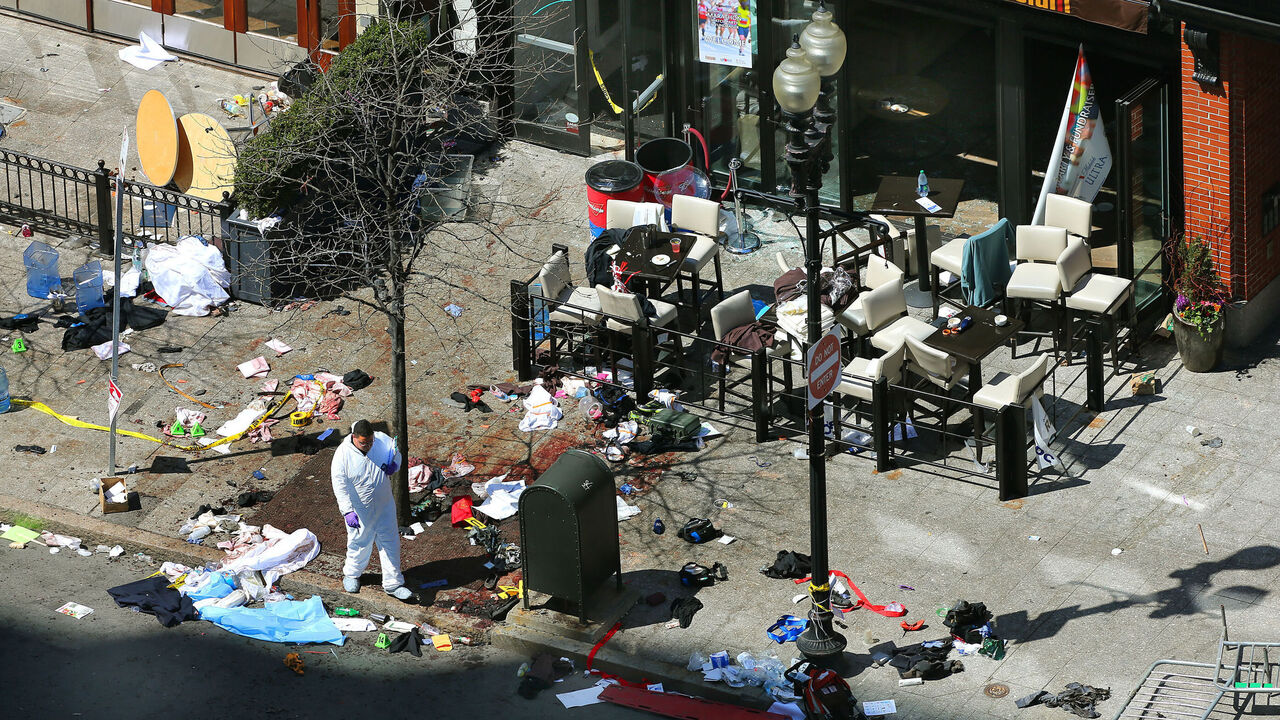
The running community refused to be intimidated. The next year, 36,000 runners turned up to "give the middle finger to anyone who thought they could intimidate us from coming together," Linden writes in her memoir "Choosing to Run," which was released in stores earlier in April.
Linden has mounted an incredible fight over her career, healing her femur and qualifying for another Olympics in 2016 - this time finishing in the top 10 in Rio. In 2018, she took care of unfinished business by finally earning that Boston Marathon victory, becoming the first American to win on the women's side since Lisa Rainsberger in 1985. She's entered again for Monday's race, her ninth trip through the streets of Massachusetts.
Looking back on a career of highs and lows, the 39-year-old spoke with theScore about 2013 in Boston and the power of resilience throughout her career.
(This interview has been edited for length and clarity.)
theScore: You wrote in your book that when you first got into running, you loved the absolutism of the sport - it was just pure. Results had nothing to do with drama or politics or anything else. Can you talk a little bit about that?
Linden: You get into sports, and you're learning how to cooperate with the kids, and all the different skills involved. But other factors come in, and particularly in soccer, it was like my size was very limited. And so I had to work twice as hard. That was something my dad just kind of drilled into me: You have to practice more, you have to play bigger. All of that I could do, but it still didn't necessarily translate to results. Once I got into running, it was an immediate connection of: I work hard, I see progress, I get a reward. Phase 1, work hard - that was just very simple and, for me, gratifying where it wasn't trying to please somebody.
You have such a unique relationship with the Boston Marathon. It's really been a guidepost throughout your career. In 2011, you had what would have been a wholly exciting appearance, except that you missed first place by two seconds. Can you walk me through that moment? What impact did that have on you?
It was mixed feelings down the line. In the moment, I pictured winning that race. I had done all the work and it was that very simplistic mentality of: I've done all the things I've seen on paper, and this normally wins the Boston Marathon, so why didn't I get that result? So mentally, feeling like I had done everything but not gotten the reward made it a very tough finish for me.
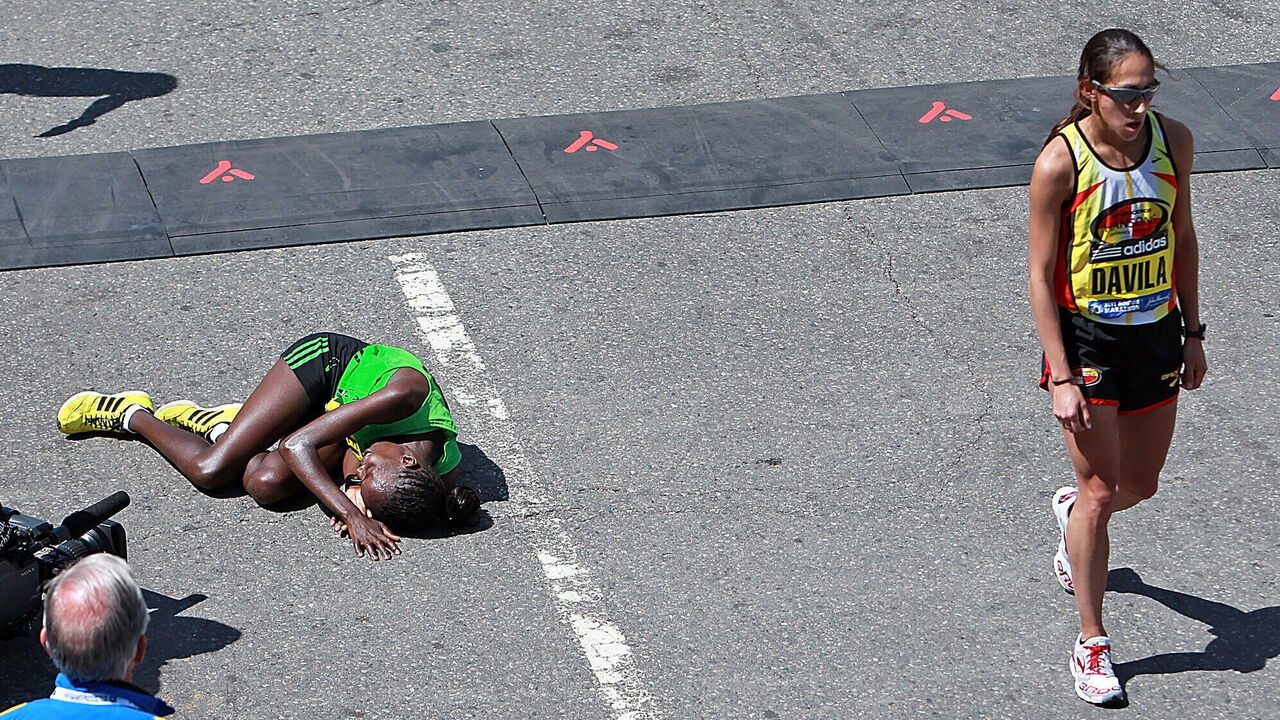
The outside world was like, 'Wow, massive breakthrough. This is a new star on the scene. Trajectory is onward, upward.' So it was hard to kind of put those things together and think about what it meant for my future. In the moment, it just felt like a letdown after visualizing winning for so long. But with a little bit of time and perspective, it obviously became a moment that I was very proud of. I knew I could compete with anyone in the world. I was very close to getting a victory. I just needed to keep doing what I was doing.
You didn't run at the 2013 Boston Marathon due to injury, but as a prominent figure in the running community, you attended as an invited guest. You said you had many friends who were at the blast site. What do you remember from that day?
It's just unreal thinking back about it. It was a typical day, gorgeous. I did an interview during the race at the finish line and I remember saying, 'This is where everyone wants to be today. This is like one of the greatest places in sport and what a celebration. Everyone wants to be in Boston.' I remember that sentiment very vividly.
Then I went out for a run. It was a decent run and I was almost going to add on to it. It turned out it was great that I didn't because we were just getting back (to the hotel) and organized as the first bombing happened.
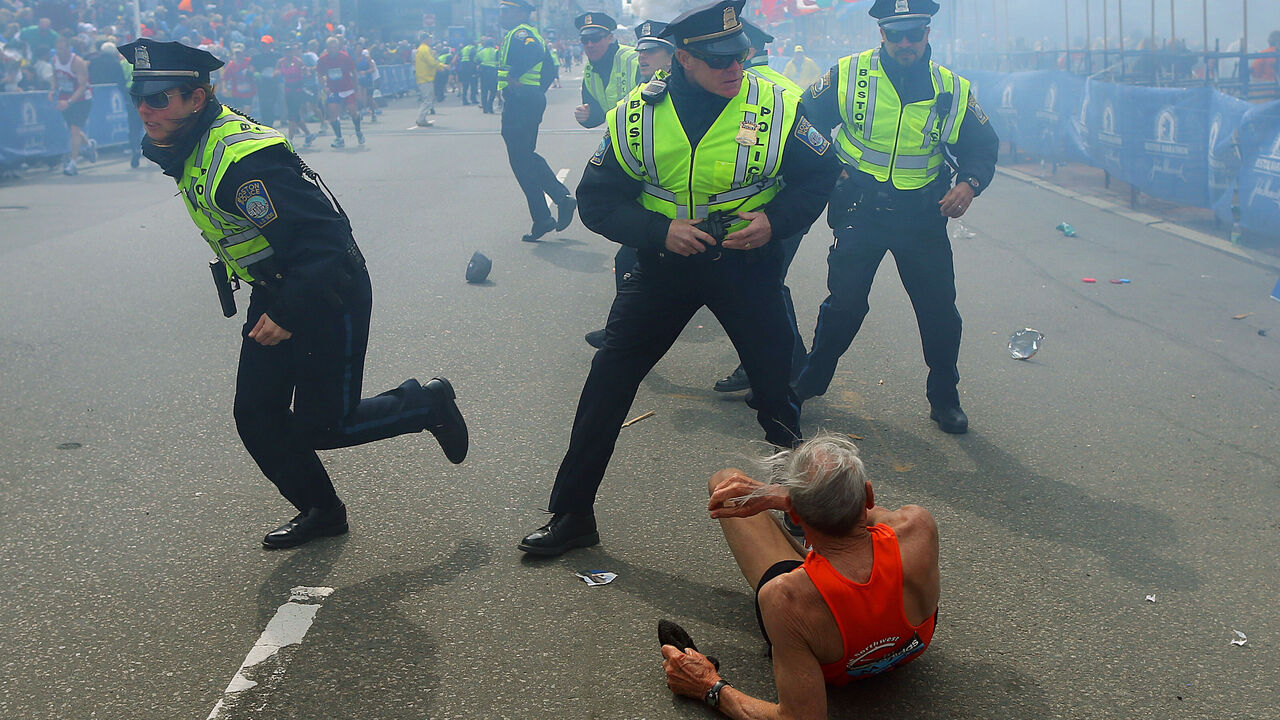
Then the rest of the day was just kind of turned upside down. There was so much bad information. Even getting information out was hard. Phone lines were jammed. It was just an unreal experience. Everyone within that hotel had a different agenda (in the aftermath). You're there with other athletes, their supporters, people that were on the course, and that's where the media was as well. So some people are just like, 'Hey, can I interview you?' while some people are crying because they don't know where their family is. It was just a lot of emotions packed into one building. That was really, really hard. But I think everyone - once they felt comfortable and secure - felt like they were going to come back the next year, and it was going to be not just a race but a statement. This is a really strong, resilient community.
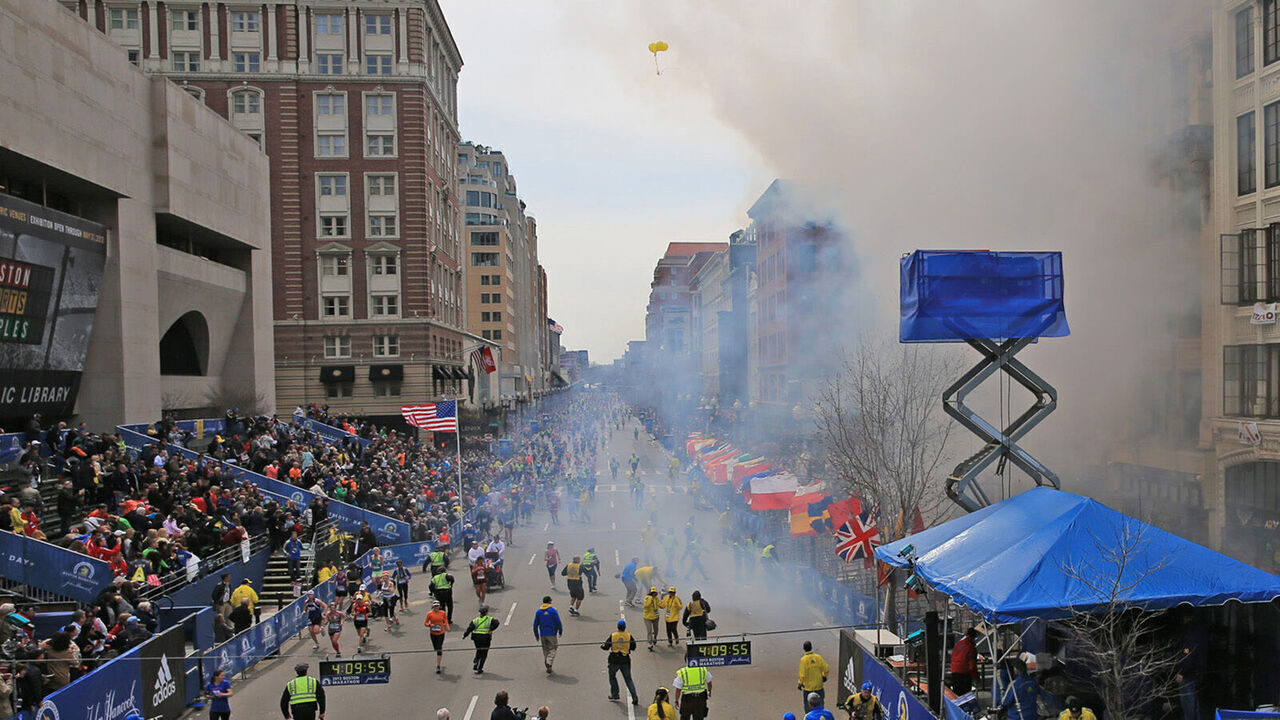
The Boston Marathon has helped form your career. Did it feel like a personal affront that terrorism had occurred at an event that was so special to you?
I think it was always something that we were going to bounce back from. I have really unique feelings about terrorism. I try not to be terrorized by it because that just sort of validates the act. I also didn't want to be desensitized to it. It's always hard to talk about the meaning. I just always looked at it as: We will bounce back.
And bounce back you did. Not only did you return to the Boston Marathon, but in 2018, you became the first American to win the women's event in 33 years. The conditions were rainy, windy, and otherwise horrible, which ended up being an advantage for you. Do you think that lesson translates to life in general?
I'm not sure that it is an advantage. I think that I just don't let things that are hard become a disadvantage. To me, it was like, 'I know the weather is going to be tough. I know what it's going to be. I know that is going to get into a lot of people's heads. They're going to count themselves out before they even take the first step on the course.' I think this is one thing where I refuse to let that be a disadvantage. I'm not going to let something that I haven't even experienced yet set me back or put me in a negative space.
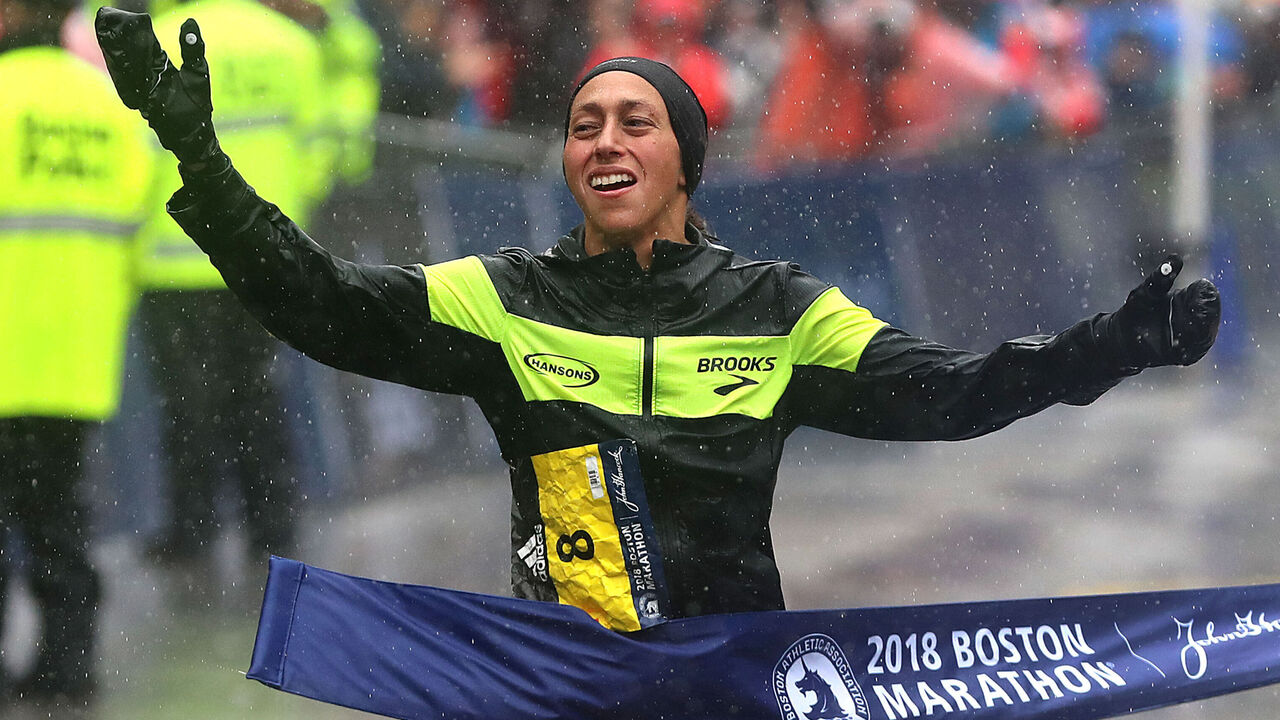
I was surprised when reading your book that you hadn't originally approached that race with the intention to win, and that your husband, Ryan, played a pivotal role in helping you see your potential the night before. Can you talk a bit about your relationship?
Ryan is my biggest supporter. He had a unique advantage because we have actually done marathon buildups together and done way more miles than most people and their spouse. He's watched a lot of it and he had actually run a fair amount of it with me.
He is very enthusiastic and optimistic ... he always has this positive outlook. So I was trying to balance that with wondering if this would set me back in my future. But I also knew that he had great perspective and insider information in terms of watching what I had done. It was balancing a lot of that. Also, at the end, it was just trusting that he wasn't speaking from pure enthusiasm but also from the logic of watching my buildup along the way and knowing my history over years of preparing for the distance.
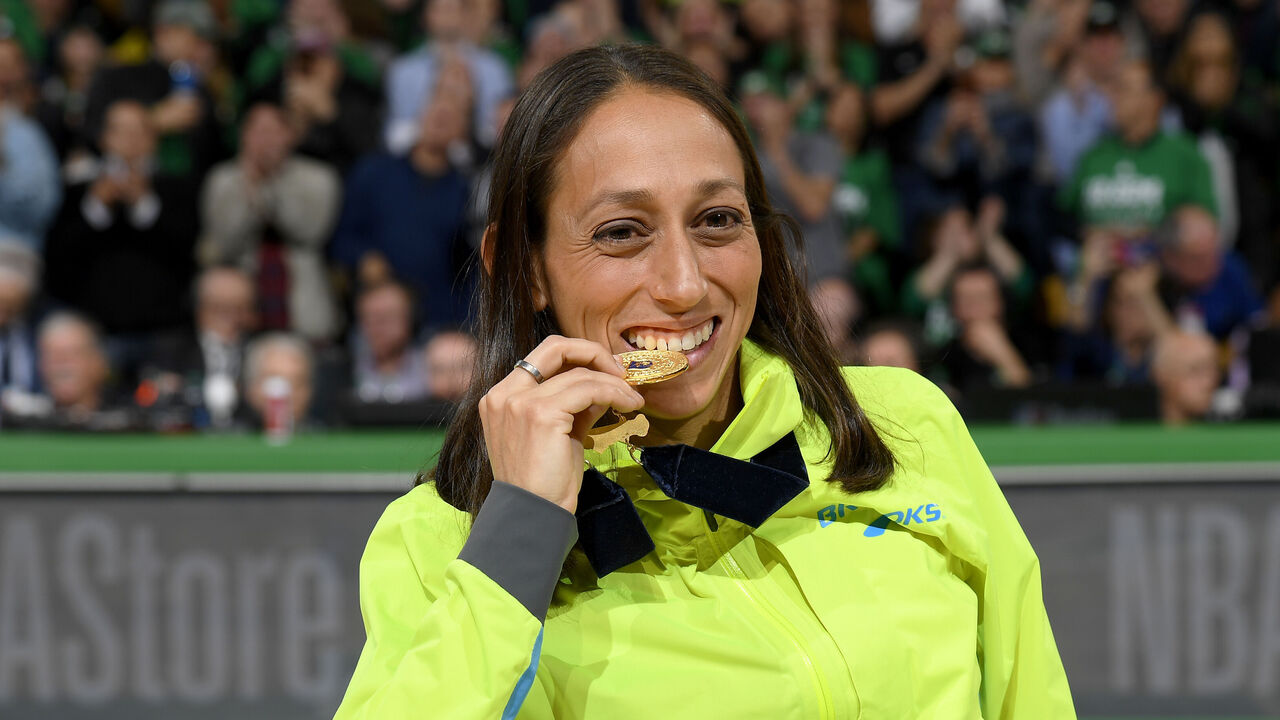
Winning the marathon was the pinnacle of your career, which has had many ups and downs. After you placed second in the 2011 Boston Marathon, you then qualified for the 2012 Olympics - a huge moment. But, your result at those Games was not what you hoped for, as you didn't finish the race. When did you find out that you actually had a femur fracture that contributed to your poor performance?
It was two weeks after the Games. I was still trying to figure out how I could get started up running again - when could we start putting races on the schedule? Every time I tried to get back into it, my body rebelled. I wasn't making any progress. USA Track and Field had a great program I was able to use to get treatment. They did another MRI and just happened to catch the top of the fracture. Then we were able to do another MRI that really captured it. So it was probably a month after the Games.
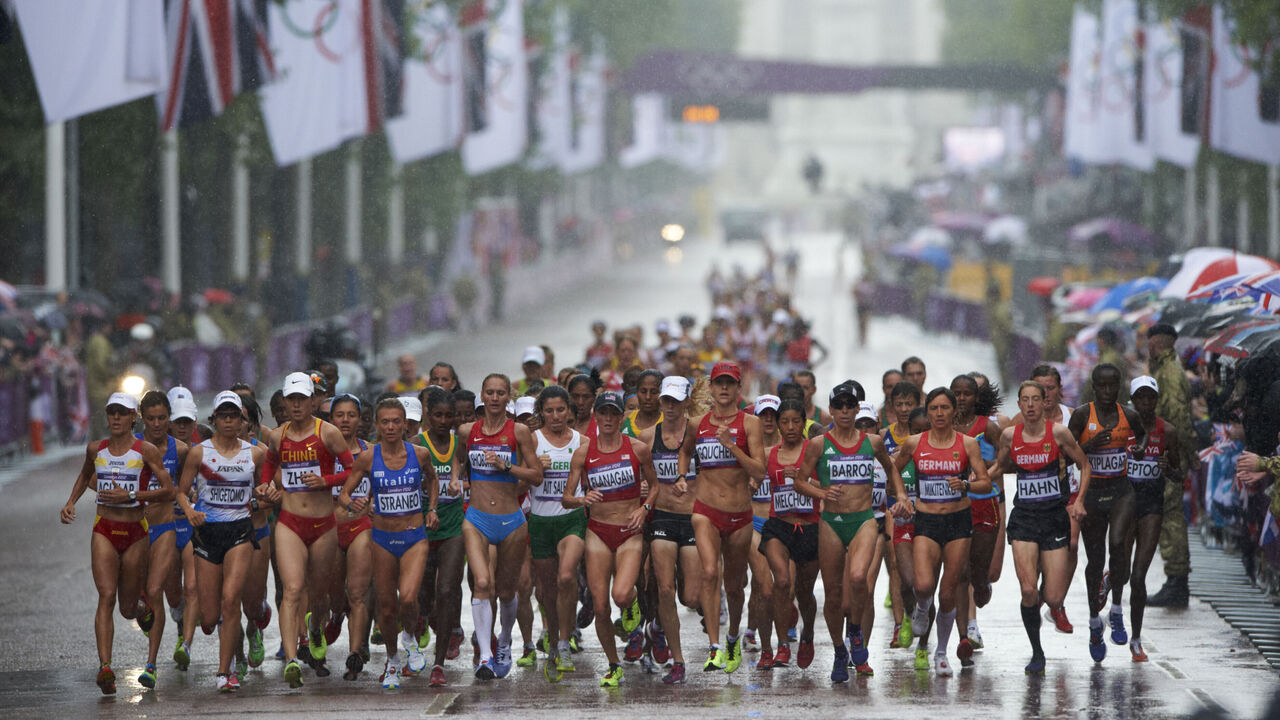
I think it's kind of a funny thing to say, 'I was so glad I had a fracture.' Because, you know, at the moment, I thought it was tendinitis. And I'm pretty tough. I think I could at least get through tendinitis. I have a pretty good head on my shoulders. I have a lot of mental strength. (At the Olympics) I was thinking, 'I've had a good start, everything is good, good attitude ... why haven't I been able to push through this? Why does this hurt so much when it's just tendinitis?' So, seeing the fracture and going 'OK, this makes much more sense,' was a relief, for sure.
You returned to the Olympics in 2016, and that experience in Rio was much different from London. Not only did you finish, but you placed seventh. Can you talk about the contrast?
Prepping for it was so much more fun. Getting to the start line and feeling a sense of possibility was a really cool feeling. You know you've done everything, and you know a medal could be yours if you put the pieces together correctly. That's how I felt most of the day until the end. To be able to get to the finish line of an Olympic Marathon after the London experience was very satisfying. Again, it kind of went back to that original goal of wanting to be an Olympian. I did it in 2012, but it never felt real because I didn't get to the finish line. So this was like putting the period on the story for me.
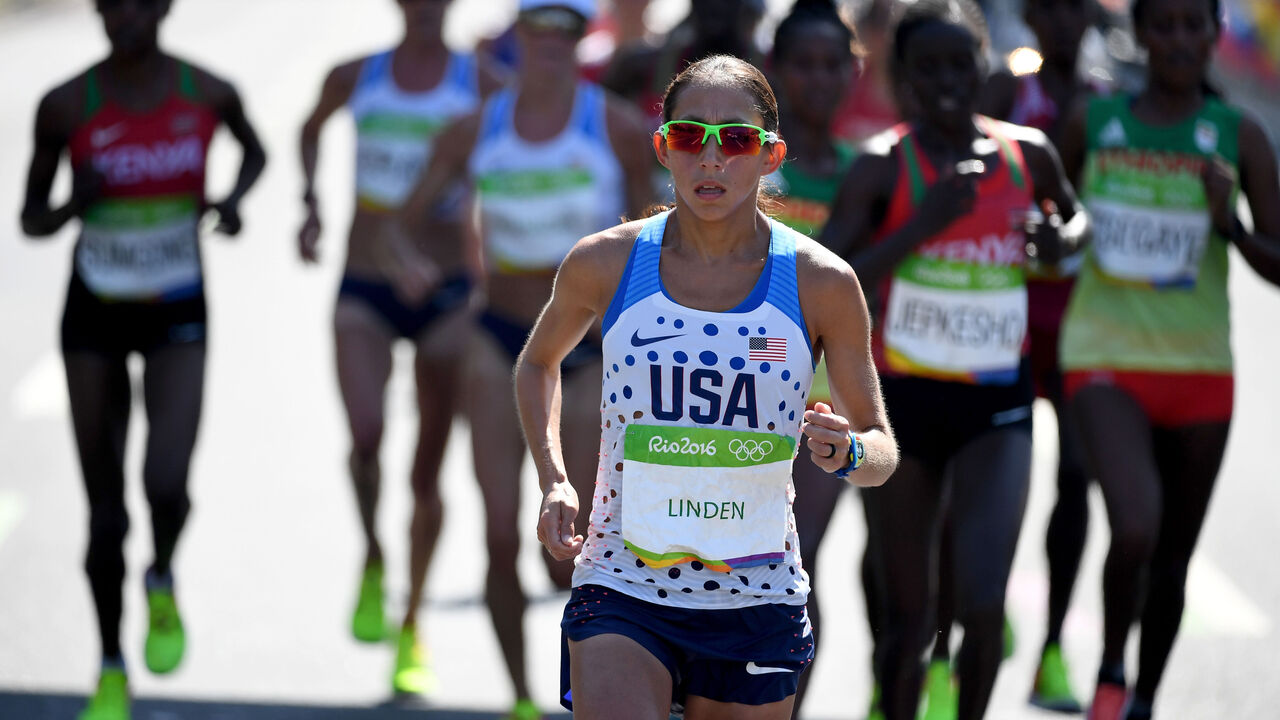
You didn't win an Olympic medal, but being the first American woman to win the Boston Marathon since 1985 is an accomplishment that will follow you for the rest of your life. You're imprinted in the history books. Do you ever think about that?
I do, and it always makes me laugh because when I picture it, that's how 2011 was supposed to look. That's what was in my mind. In my mind's eye, but just fixing the last three seconds. And so I just sort of chuckle that it doesn't always look how we imagined it. But it doesn't mean that it can't happen in a million different ways. I think being open to the possibility that it might not look like what you've dreamed of is super important.
Jolene Latimer is a feature writer and video producer for theScore.
HEADLINES
- Report: Mets interested in Luis Robert; White Sox like Blade Tidwell
- Capture the Flagg: Where No. 1 pick might land, and how he could fit
- Golden Knights in awe of Smith's winner: 'One of the craziest things I've ever seen'
- Ant goes off for 36 to lift T-Wolves past Warriors in Game 3
- Padres make history with 21-0 shutout of Rockies